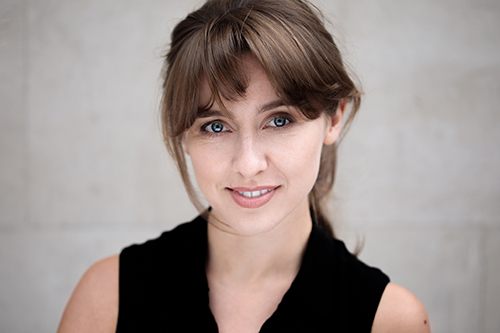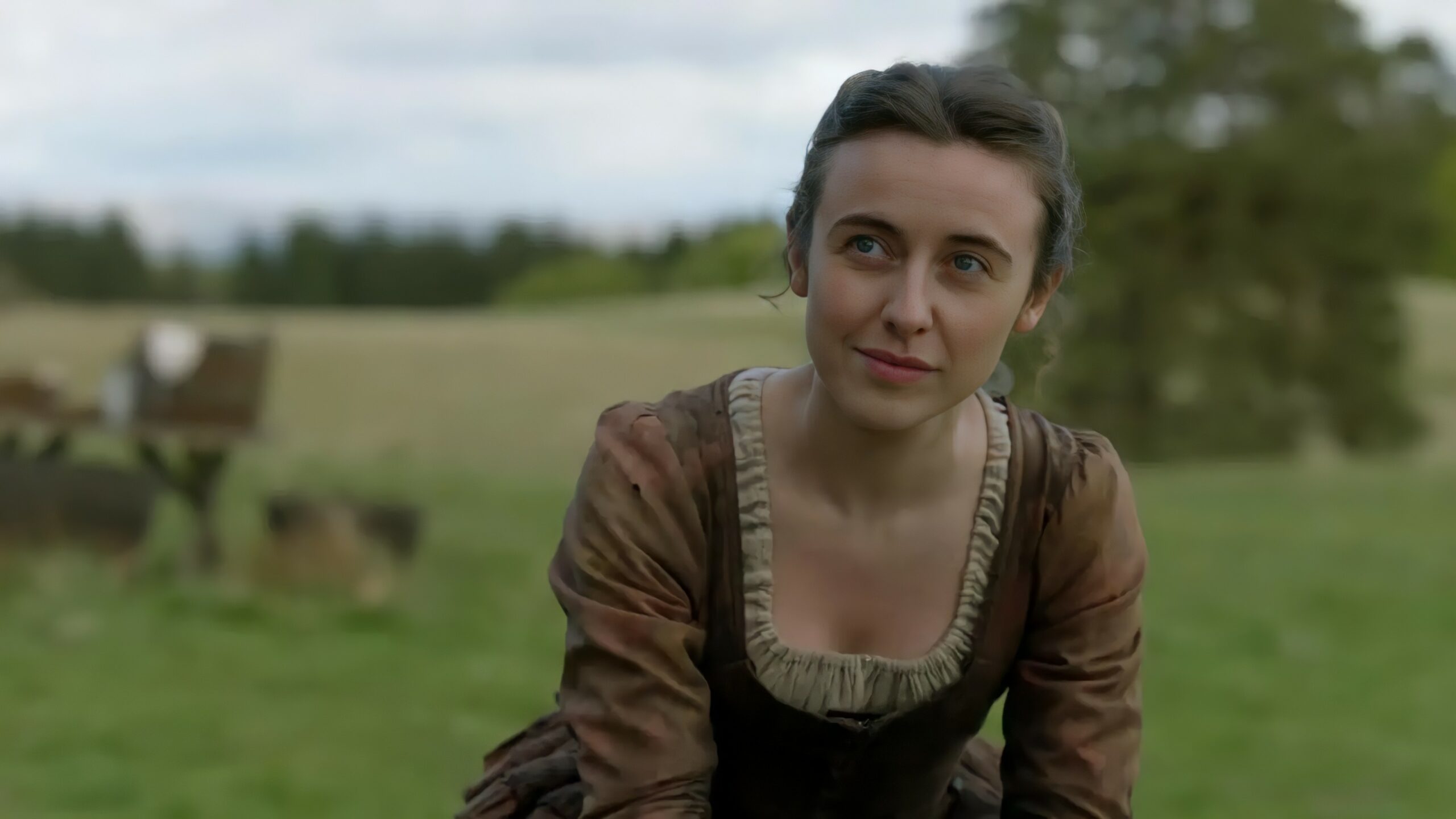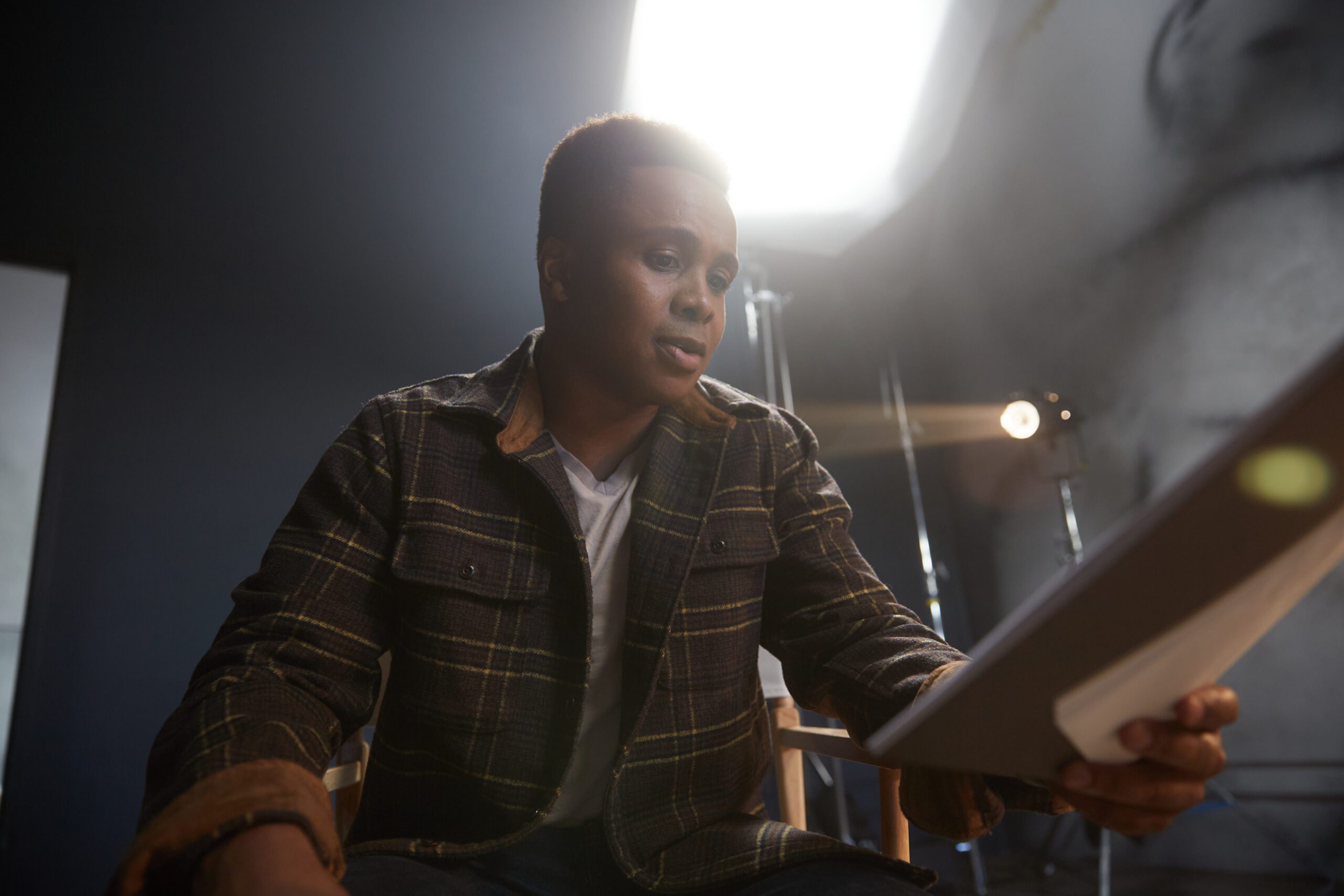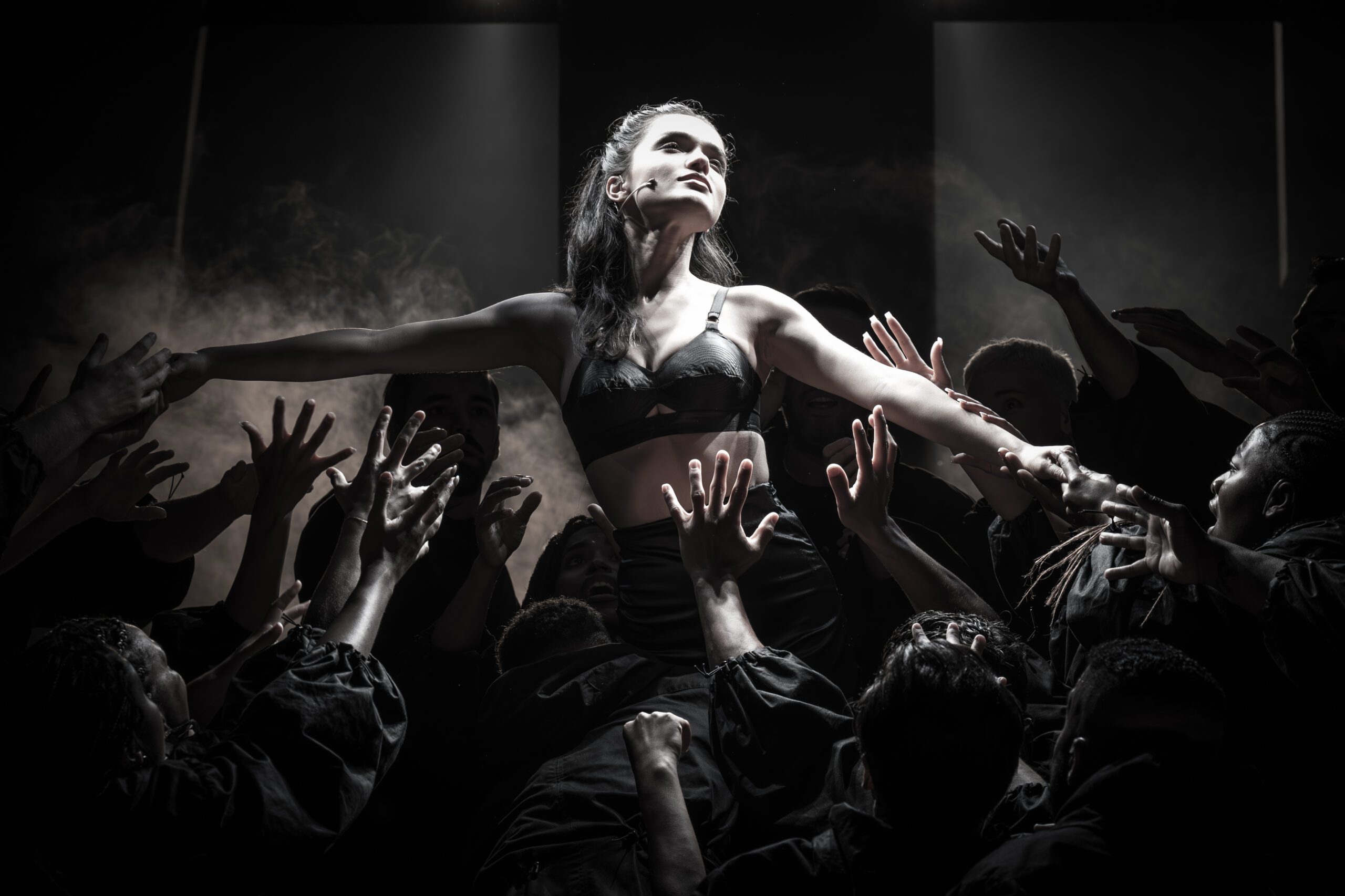Scottish actor, writer and director Joanne Thomson tells us about her journey into acting and getting a role in historical drama ‘Outlander’
Joanne Thomson is a varied creative known for showcasing her talent on stage and screen, including in the BAFTA award-winning film, The Suffragettes, she has also written and will co-direct her short film On the Twelfth Day of Findom – recently shortlisted for BFI funding. A proud Glaswegian who studied at the Royal Conservatoire of Scotland, as well as in LA, Joanne has been known to exercise her passion for championing unrepresented voices in the roles she plays.
Over a year on from playing ‘Amy McCallum’ in Outlander, we spoke to Joanne about the journey she’s been on in her performing career:
Hi Joanne! How did you first become an actor?
I am one of those people who always wanted to do this. I never really wanted to do anything else. I first got into it because I was really badly bullied at school. In primary school especially, I basically lost all my self-confidence. My mum was asking for advice on ways to get me out of it and a friend suggested enrolling me in drama classes at the Scottish Opera in Glasgow.
So that was when I started acting, but I’d been going to dance classes and things since I was three and I was always in the middle of the stage. Acting came a little later when I started going to a musical theatre school.
What was your first role?
One of my first jobs was in Blackout, which was a play by Davey Anderson at the Underbelly at the Edinburgh Fringe. It was for a company called Thick Skin, which is still doing really well. It was a very physical theatre with a cast of five, for which I was ensemble. I made friends for life with them. That was my first experience with that kind of ensemble feeling.
The buzz around the Fringe was so exciting. I think that was the first time I felt like a proper actor because then we got a tour out of it. It was sold out, won an award and got five-star reviews. It was a really lovely start to something and I auditioned for drama school in the meantime.
What made you choose the Royal Conservatoire of Scotland?
I went to LIPA for a year to do the foundation degree in Liverpool when I was 17. I was there for a year but kept auditioning for drama schools. I got into a few, but I always wanted to go to the Royal Conservatoire of Scotland, so I just kept trying to apply there.
One of the reasons I eventually landed on [the Royal Conservatoire of Scotland] was that they were a little bit more lax about you working while you were training, but that interim three years when they kept rejecting me, I started to think, “Well, screw this. Clearly, drama school’s not the way to go.” I was like, “I’m just going to go at it in another direction.” I’d applied, I’d written letters, posted them to Scottish-based agents and also the big dogs like the National RSC and the Globe.
Just as I was due to go to Guildford School of Acting, two weeks before I was due to move, my dad was diagnosed with terminal cancer. So, I had this real choice of everything I’d always wanted, versus staying home and looking after my family. My dad wanted me to go but I chose the latter. I knew I’d never get that time back with him.
When he passed away after just one month, I just all of a sudden had this whole year, these 10 months essentially to fill with something that was still gearing towards acting. I’m very goal-oriented, so I was still trying to head towards something. If you’re somewhere that is continually providing those links with the industry while you’re there when you graduate, you’re further on than the other hundreds of graduates who are all trying to clamber for attention or a shot. That was really important to me. That was why I wanted to go to the Royal Conservatoire of Scotland.
My advice to people at drama school would be [to] make the most of that because it’s a real shock when you come out and you don’t get to play every day. Come up with a practical plan before you leave of the things you want to tick off. Film stuff, record stuff – soak it up because it goes very fast.
Can you tell us about your role and the audition process for ‘Outlander’?
This was the longest role coming for me, for sure. It was my fourth time auditioning for the show. I’d auditioned all the way back in season one and it was my worst audition I’ve ever had in my life!
I was called into the casting director’s office in London and the character I was playing got choked up against a wall. So, I had to choke myself and I was doing the scene, mid-scene, I was being filmed and I stepped back onto the backdrop in her office. The backdrop fell, the scaffolding fell and this giant pole fell on my head. It was honestly one of the worst moments of my life. I had to help her put it all together again.
I auditioned for another part that had a similar vibe to the part I eventually got – the mother figure. Then, seven years since I first auditioned, I was finally on the set and in the Outlander world, which was an incredible experience. For the Scottish industry, it really is people at the top of their game. In season one especially, the acting is phenomenal from Caitriona Balfe, Sam Heughan and Tobias Menzies and they are just some of the most phenomenal performances I’ve ever seen.
That was my first job in I think two and a half years. I was on a break, not auditioning, quitting acting, basically. Then I booked a one-way ticket to Los Angeles. And when I was in LA, that’s when I auditioned for Outlander.
 Joanne Thomson as Amy McCallum in ‘Outlander’ / Image credit: Sony/Starz
Joanne Thomson as Amy McCallum in ‘Outlander’ / Image credit: Sony/Starz
You were nominated for two awards for your role in ‘In Plain Sight’. What was that experience like?
It was a proper baptism of fire, as I’d only been getting theatre work before. There were loads of actresses that could have played that part. It was about a serial killer from where I’m from, this little village in Uddingston, where these murders took place, called Birkenshaw. So I said, “I can play this part. One of the girls was actually killed on her way to my school. Please give me this. I am an actual voice of this area.” I know that was the thing that tipped it over as if that hadn’t been set there, I probably wouldn’t have got it. I might never have gotten on TV.
That was a huge surprise. I just woke up one day and I was nominated for these two awards: Best Young Actress and Best Emerging Actress. That was a really cool night when I brought my mum down to London for my first red carpet.
You said the role was a baptism of fire. Why was that the case?
This was my first role in TV, so obviously I’d never been on a TV set before and I was number three on the call sheet below Dougie Henshaw and Martin Compston. When I first got the script, and when I first got the character description, she was a new policewoman in the 50s. So, it was a new thing. But then when I got the other scripts in, she basically followed the case the whole way for five or six years. We shot everything for the end of the programme in the first week. I did all of my nervous observation stuff in the last week when I knew everyone and I knew what I was doing, and all of the scenes where I had to be really confident were shot in the first week!
The very first day on set was a Friday afternoon, so already they’re not quite running over, but the crew was keen to go home. My scene was my biggest scene, with Martin Compston from Line of Duty and I had to interrogate him about the murders he’d committed. I also had all these props I had to figure out.
I wasn’t sure how big to place things. I had to choreograph all of these props because we were shooting it from four different angles and the props needed to be consistent. When you push one forward, when you sit back, when you pick up your pen, otherwise all of the takes are unusable. So, I had to choreograph that having just got the props and only just knowing what that action would be, I had to remember it. It was a lot. It is going out to six million people on prime time ITV, also. TV is a wild thing to start on your first couple of jobs!
You’ve had quite a varied career. Has that been intentional?
I’d love to be able to say, “Oh yeah, I choose what I do.” There have been very few times where I have. I remember I’d just finished doing a Shakespeare play and then my agent sent me an audition for that same play, right off the bat. I was like, “No, I can’t look at Twelfth Night again. Sorry.” I don’t necessarily feel like I’ve had a varied career, but it’s nice to hear how I’m perceived by the outside world and that it’s worked out that way.
You act and write and direct now. How are you juggling it all?
I’m just taking each thing as they come, managing my time. I really recommend Asana, which is my to-do list app. Every time you tick a deadline off for a task, a unicorn comes across the screen and it’s really pleasing!
But it is tricky. I was in a writing meeting before this interview for a redraft we are applying for funding for and I have to go straight back into that mindset after this. But the only reason that I’m able to do all three – acting, writing and directing – and stay somewhat sane is this is the first time in my life that I’ve been able to commit to not having another part-time or full-time job that’s not related to the industry.
I’ve had a year fully as a creative, and being from a benefits-class background, I’m not used to that. It’s so important that we champion working-class creatives because having sat in both camps, it’s really clear how near-impossible it would have been to concentrate on writing with no financial support while I was trying to juggle multiple pay-the-bills jobs at the same time.
What do you think needs to be done to open up the industry to people from different backgrounds?
I guess it all starts with training being accessible. Things like outreach programs in high school. My careers advisor laughed at me when I said I wanted to be an actor! But the problem is an industry-wide thing, which is representation. We have to put our money where our mouth is.
I’ve had experiences in writing and directing where we’ve had someone come in and they’re maybe not a name, but they’re the best person for the job. Then I’m getting suggested, “Oh, or maybe it should be a name.” And I’m like, I know that if I cast a bigger name, it could massively help my project, but if someone else with less profile is more right for the part, then I can’t be a hypocrite.
We need to all ask ourselves, are you opening these callouts to the right people and trying to make active change when you’re presented with an opportunity to?
From all of us at Spotlight, we say a huge thank you to Joanne Thomson for taking the time to talk to us. To hear more about Joanne’s upcoming projects, visit her website or follow her on Instagram.
Take a look at our website for more interviews with actors and casting directors.
 Headshot credit: Cass Michael
Headshot credit: Cass Michael



















